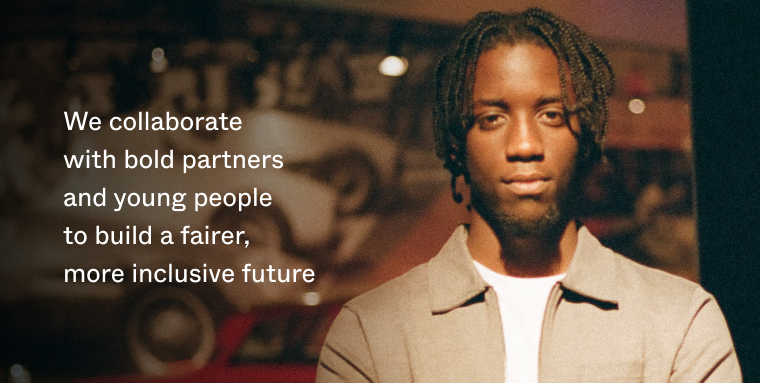
Amira, 24, is currently Head of West Midlands at social mobility charity CoachBright. In this blog, Amira discusses her own experiences in the youth engagement sector and her perspective on how organisations can amplify the voices and power of young people from underserved communities.
“It is safe to say I am someone who is passionate about youth engagement. If you were to take a glance at my personal and professional journey you’d see I have taken part in numerous youth leadership initiatives, from the funding space to politics. I am a youth consultant for a funder, a trustee at a charity for youth leadership, I now work at a social mobility charity for children. On the surface this tells a story of a young person keen to contribute to her community, to have a say in spaces that have historically erased people like her.
 However, what this doesn’t tell you is that for me, as well as many other young people from working class backgrounds, our passion more times than not is born out of frustration. Out of anger. Anger at an education system where I didn’t come across a Black educator until I did a post-grad degree. Frustration that so many organisations claim to value young people and their insights but never give young people transparent access to rooms where decisions are made. Rooms that make decisions for us, for our futures but don’t authentically see us or hear us.
However, what this doesn’t tell you is that for me, as well as many other young people from working class backgrounds, our passion more times than not is born out of frustration. Out of anger. Anger at an education system where I didn’t come across a Black educator until I did a post-grad degree. Frustration that so many organisations claim to value young people and their insights but never give young people transparent access to rooms where decisions are made. Rooms that make decisions for us, for our futures but don’t authentically see us or hear us.
This is why when I now engage with organisations I think of Toni Morrison’s quote ‘You are Your Best Thing’. A deep understanding that I have something to contribute in the rooms I enter, even when they don’t look like me. Where my background isn’t a tick box exercise for organisations and institutions, but a rich tapestry of lived experience that should be valued. The institutional barriers, be it in education or the workplace, that I have had to overcome, as well as so many other young people of colour, are institutions that Mission 44 and their partners are actively trying to shift to a place where power is shared not hoarded.
So whilst my anger at these barriers still fuel some of my passions – my hope and optimism that we can collectively create equitable space for young people in all institutions fuels me just the same. Hope that we’re moving towards a sectoral shift that sees young people as leaders and decision makers. Hope that whilst the change we want to see happen is incremental – it is a collaborative process that values all voices. So when you are in a room where decisions are being made – ask yourself not only who is missing, but why are they missing?”
Amira,
24, London




